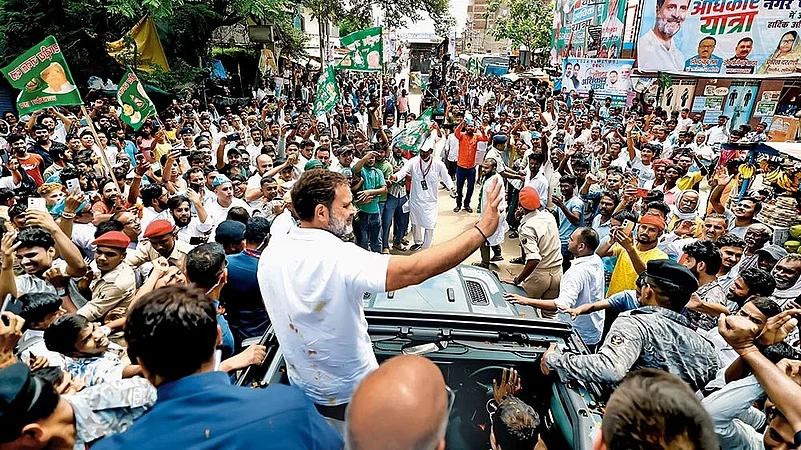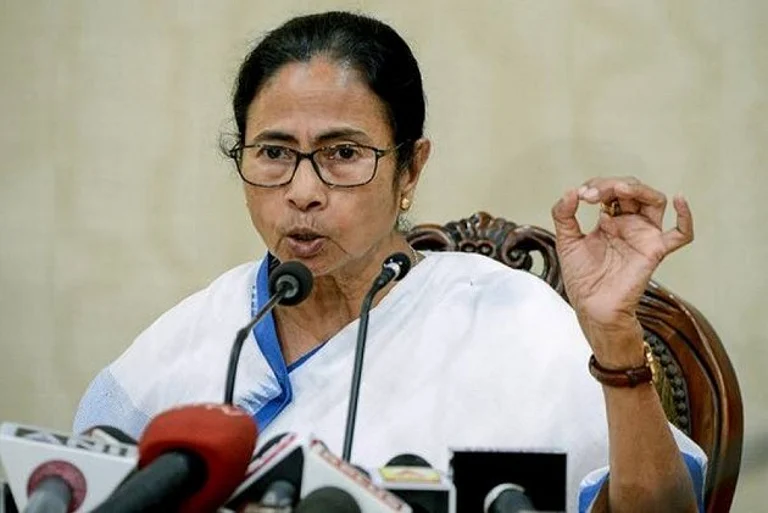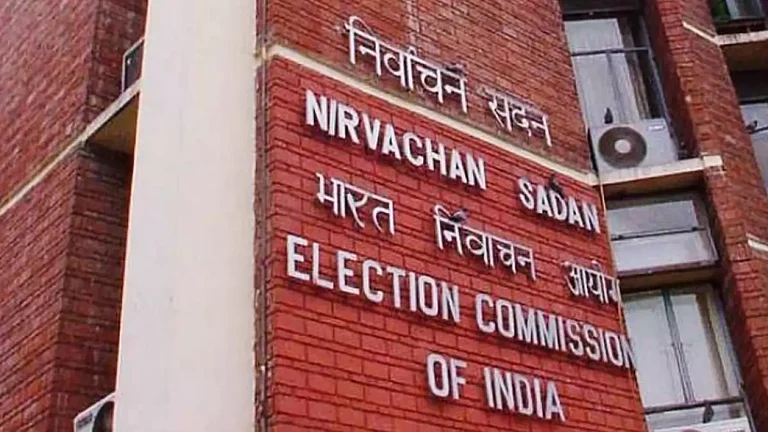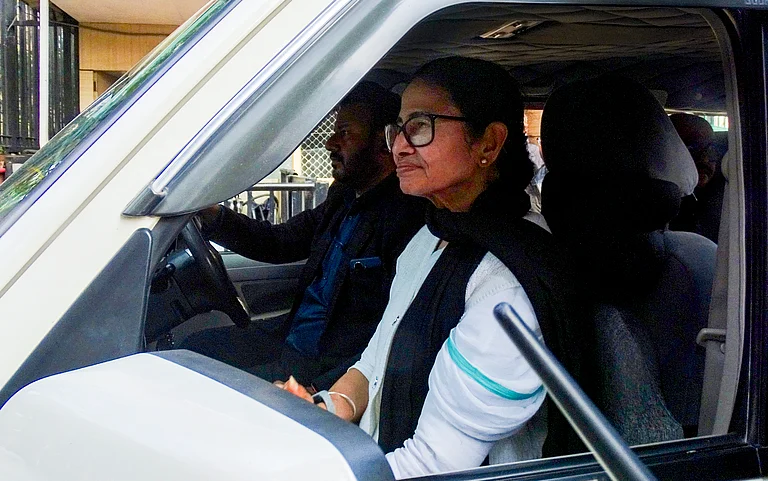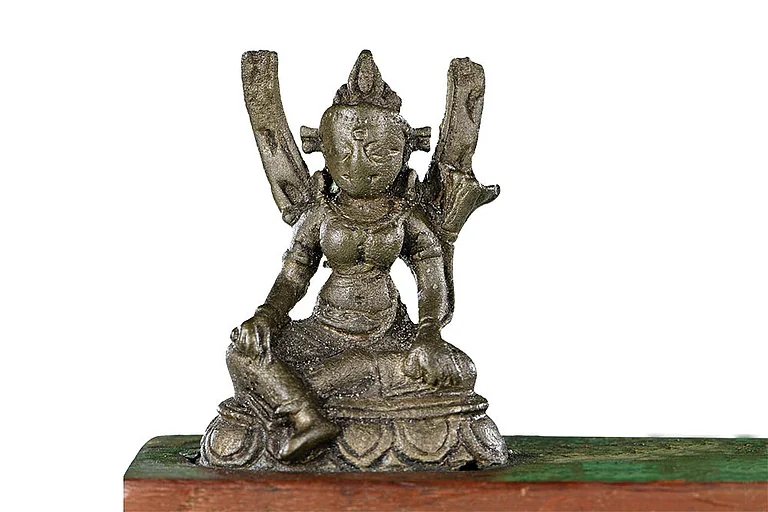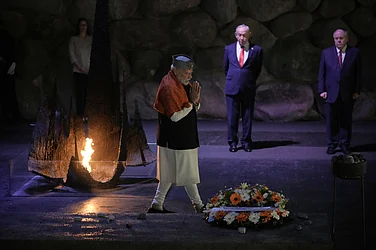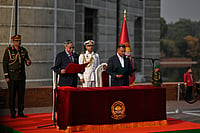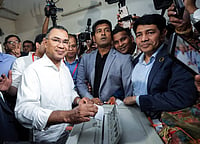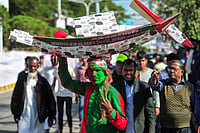
ECI said the Bihar SIR will clean electoral rolls, but opposition says it will rig the electoral roll to suit the Bharatiya Janata Party.
Since 2014, Prime Minister Narendra Modi has used the words ‘infiltrator’ and ‘refugee’ for political aims.
This battle of narratives is intensifying in West Bengal, where alleged illegal immigration is BJP’s political plank.
On August 17, Bihar’s top opposition leaders, including Rashtriya Janata Dal (RJD) leaders Lalu Prasad Yadav and Tejashwi Yadav and the Communist Party of India (Marxist-Leninist) (Liberation) helmsman Dipankar Bhattacharya, joined Congress leader Rahul Gandhi to kickstart a 1,300 km march over 16 days across 23 districts in the poll-bound state.
Named Voter Adhikar Yatra (march for electoral rights), the campaign calls for defeating the “disenfranchisement design” of the Special Intensive Revision (SIR) that the Election Commission of India (ECI) is conducting in the northern state.
While the ECI said the drive is aimed at cleaning up the electoral rolls of the dead, duplicate and migrant voters and illegal infiltrators, the opposition alleges the SIR is meant to rig the electoral roll to suit the interests of the Bharatiya Janata Party (BJP), which leads India’s ruling National Democratic Alliance (NDA). The August 17 march, therefore, marks the beginning of a concerted campaign branding the BJP as a beneficiary of the ECI’s alleged partisan role.
Congress leader Jairam Ramesh calls the Yatra a response to the “BJP’s ploy to disenfranchise lakhs of voters in Bihar through the SIR” and “the shocking revelations of ‘vote chori’ (vote theft) happening across the country.” It’s not “just another political march”, but “a moral and constitutional crusade”, says Ramesh.
The Supreme Court is yet to rule on the constitutional validity of the SIR exercise, which seeks to ascertain the citizenship of people on the electoral rolls. It has allowed the ECI to move ahead with the process of voter list revision while continuing to monitor the developments. But two interim orders by the top court have understandably emboldened India’s opposition camp, including those that are part of the Bihar opposition alliance.
The order asking the ECI to upload details of 65 lakh voters whose names have been deleted from Bihar’s draft rolls—including 22 lakh who have been declared dead, in an “EPIC-based searchable” format, along with the explanation for exclusion—is a jolt to the ECI. EPIC refers to an Electoral Photo Identity Card, which contains specific numbers allotted to each elector.
The poll panel had, rather strangely, argued in the court against revealing the details of the excluded names, saying that publishing a list of excluded voters was not required by any law. Besides, only recently, the ECI’s website had, almost overnight, changed the draft voter list’s format from machine-readable to non-machine-readable copies, a move that drew widespread criticism from the opposition parties as well as members of civil society, including transparency and democratic rights activists. The new format did not allow EPIC-number-based searches.
EPIC-number-based search on such digital documents will make it easier to identify errors or verify claims, the opposition had argued and the court agreed.
The apex court not only asked the ECI to give the widest possible publicity to the list of persons excluded from the voter list in the draft rolls, but also asked them to allow voters to submit copies of Aadhaar, one of the most common documents people have, as proof of identity. It was another proposition that the ECI had been opposing and the opposition parties and rights activists had pressed for. The ECI has been arguing that Aadhaar is unreliable as it’s frequently faked.
The opposition parties’ conflict with the ECI is not new. They have repeatedly accused the ECI of showing pro-government bias—on issues ranging from preferential action on politicians for violating the poll code of conduct to various aspects of polling itself.
Two of the three election commissioners, including the Chief Election Commissioner, Gyanesh Kumar, have been appointed by a committee headed by Prime Minister Narendra Modi under the Chief Election Commissioner and Other Election Commissioners Act, 2023, a law that the Supreme Court is still scrutinising for constitutional validity. Meanwhile, the past manipulations in the voter list that Gandhi, the leader of the opposition in the Lok Sabha, recently claimed to have exposed in Karnataka, has added fuel to the fire of the opposition campaign.
Before the SIR was announced at the end of June, the opposition in Bihar was targeting the NDA’s Nitish Kumar government for misgovernance. Now, they are calling upon the voters to “punish” the “BJP and the ECI’s brazen collusion”.
While the opposition’s grand march is also raising the issues of employment generation, rising crime graph, social justice—including reservation for the Other Backward Classes (OBCs) and raising the reservation cap to 65 per cent from the existing 50 per cent—free healthcare, education and housing, the name of the rally reflects its focus—“protecting people’s voting rights”. The key slogan is: “Vote Chor Gaddi Chhod” (step down, vote thieves).
Ploys and Prongs
Bihar’s ruling alliance appears to take a similar two-pronged approach—development and demography in their case. Kumar stays focussed on development. On a sop-announcing spree, he has increased cash benefits for pensioners and women; doubled the honorarium of school support staff, including cooks, night watchers and instructors; promised 125 units of free electricity for domestic consumers; hiked the pension of accredited journalists; limited the existing 35 per cent reservation for women in government jobs to only Bihar’s permanent residents; formed a commission to safeguard the interests of sanitation workers; and unveiled a special economic package for entrepreneurs willing to set up industries in Bihar, among others.
The BJP, while highlighting the Modi-led Union government’s contributions in Bihar’s development, is also preparing to pitch their anti-infiltrator campaign higher.
This became evident during Modi’s Independence Day speech, in which he warned the country about illegal migration “as part of a premeditated conspiracy” to change the country’s demography.
Since 2014, Modi has used the word ‘infiltrator’ to refer to illegal Muslim migrants from India’s neighbouring countries, while he uses the term ‘refugees’ for undocumented Hindu migrants. Arguing that infiltration-affected demographic changes threaten national security, national unity, integrity and progress and sows the seeds of social tension, he announced a high-powered demographic mission to deal with infiltration.
The SIR, curiously, came amidst a drive carried out by the police in different BJP-ruled states to weed out illegal immigrants of Bangladesh and Myanmar origin. The SIR’s declared motive of verifying the citizenship of electors triggered widespread suspicion that this was nothing but a nationwide citizenship screening exercise, which India’s ruling Hindu nationalist forces have repeatedly promised.
According to Bhattacharya, the ECI’s mention of weeding out ‘foreign nationals’ from the voter list as a motive for the SIR and Modi’s Independence Day speech calling for a ‘demographic mission’ shows how the SIR is actually a citizenship-screening exercise in the garb of voter list revision.
“The SIR has already led to around 65 lakh deletions. However, not a single deletion has been shown to be that of a foreign national,” says Bhattacharya, whose party has 12 MLAs in the Bihar assembly.
On the ground, Bihar’s opposition parties are highlighting how one’s failure to prove legitimacy as a voter could result in repercussions far graver than the mere loss of voting rights. Election officers have wide powers, including referring cases of suspected foreign nationals to competent authorities. From being a ‘doubtful voter’, one can quickly become a ‘doubtful citizen’. The BJP, in contrast, is busy telling people how the opposition parties are bent on stalling moves essential for national security “just to hold on to their infiltrator vote bank.”
Beyond Bihar
A similar battle of narratives is already intensifying in West Bengal, Bihar’s eastern neighbour, where demographic changes due to alleged infiltration has been the BJP’s key political plank since 2014. The ECI has asked the administration in Bengal, where elections are due in less than a year, to prepare for the SIR.
The state’s ruling party, Chief Minister Mamata Banerjee’s Trinamool Congress (TMC), which is a part of the opposition bloc at the national level, has been opposing the SIR. The party’s Lok Sabha MP, Mahua Moitra, is among the petitioners in the Supreme Court who challenged the SIR exercise. Welcoming the apex court’s August 14 interim order, the TMC called it a “huge win for every conscientious citizen who has been asking the inconvenient questions” of the ECI.
“With the blessings of @BJP4India, the ECI thought they could bulldoze their way through, smuggling in a backdoor National Registry of Citizens (NRC) under the guise of the SIR. But they’ve been jolted back to reality by the Supreme Court,” says the party in a social media post.
So far, the NRC has been carried out only in Assam to identify illegal migrants. The BJP had repeatedly promised to implement it nationwide.
About 1.83 crore Muslims—making up roughly 11 per cent of India’s total Muslim population—live in the 11 contiguous districts of eastern India spread over the trijunction of West Bengal, Bihar and Jharkhand. As per Census 2011, Muslims make up 54 per cent of the total 3.39 crore people living in these 11 districts—Kishanganj, Katihar, Purnea and Araria in Bihar; Murshidabad, Malda, Uttar Dinajpur, Birbhum and Nadia in West Bengal; and Sahebganj and Pakur in Jharkhand.
For about a decade, the BJP has been using the increasing Muslim share in the population in this region close to the Bangladesh border to polarise voters on communal lines. Apart from Bengal, the 2024 Jharkhand assembly election, too, witnessed intense campaigns against ‘infiltrators’, with Assam Chief Minister Himanta Biswa Sarma taking the lead of the BJP’s campaign. A similar campaign is expected in Bihar, targeting the region sharing borders with West Bengal and Jharkhand.
The rampant and arbitrary detention of Bengali-speaking people, especially Muslims, in different BJP-ruled states since April has already triggered widespread panic in West Bengal. The TMC, the Congress and the Left parties protested such harassment, but the BJP’s Bengal unit leaders quickly jumped in to highlight how the TMC, the Left and the Congress are bent on protecting the interests of the infiltrators, and thus increasing Bengal’s and the country’s risk from the infiltration-related threats that the prime minister warned the country of.
While a number of political developments on the anvil are expected to be influenced by what transpires in the apex court, demography, citizenship and democratic rights appear set to dominate the poll campaigns and political discourses in the coming days.
MORE FROM THIS ISSUE
Snigdhendu Bhattacharya is a journalist, author and researcher
This September 1, 2025, issue 'The Tariff Weapon’ of Outlook Magazine arrives at a critical moment in India’s economic story, with President Donald Trump announcing that tariffs on Indian exports to the United States will rise to 50 per cent. It appeared in print as 'The 65 Lakh Hole'






